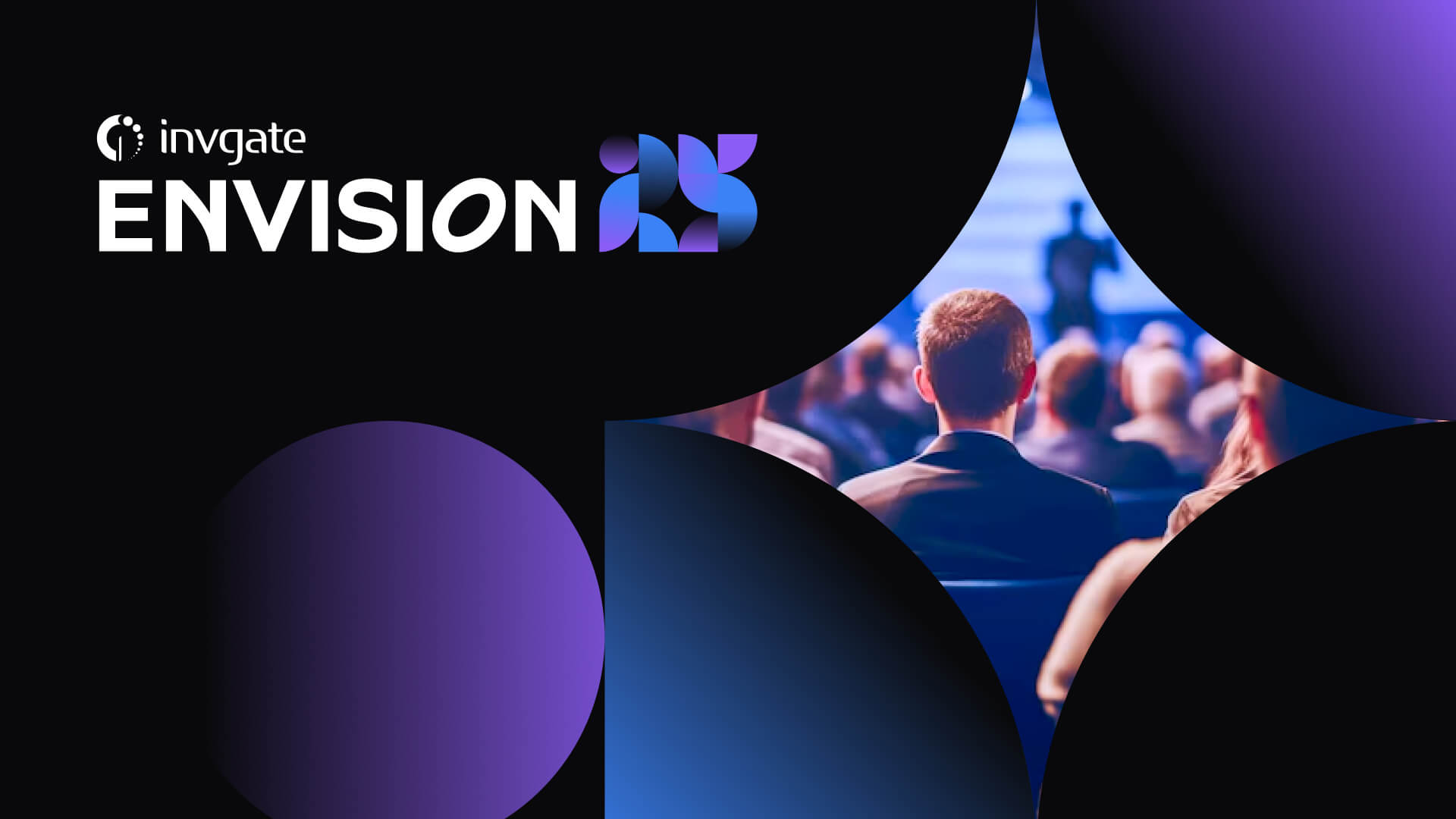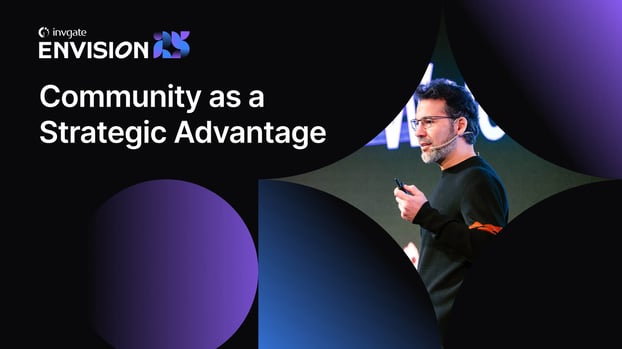“No one knows everything, everyone knows something, all knowledge resides in humanity.”
These words come from Pierre Lévy, a philosopher whose work on collective intelligence anticipated how digital networks would transform the way humans share knowledge. His ideas are the most relevant they’ve ever been, especially as IT organizations grapple with challenges that no single actor can solve alone.
Governance in the age of AI, doing more with less, bridging intelligence and execution – these are problems that demand spaces where knowledge converges, communities form, and collective intelligence becomes a strategic advantage.
That belief is what inspired us to create Envision, our global user summit. With thousands of customers in more than 60 countries, each with their own experiences and challenges, we set out to build an event that was more than an exchange of pleasantries and business cards. We wanted to create a community.
Why community matters
Envision was born from the conviction that peer exchange accelerates learning. Our customer base spans industries, continents, and cultures. Bringing these diverse perspectives together allows us all to grow – customers, partners, and InvGate alike.
For us, Envision is also about connecting directly with the people who use our products every day. It’s our chance to hear their stories firsthand: how they’re approaching new problems, how they’re implementing solutions, and how our tools fit into their bigger picture. This is a virtuous circle that informs the evolution of our products and fuels the collective progress of our community.

What we envisioned together
Envision'25 was a mirror. It reflected where we are as an industry, and more importantly, where we’re trying to go. You could feel it in the talks, in the questions, and especially in the hallway conversations.
There’s a shared realization that IT is no longer about keeping the lights on; it is now helping to shape how organizations think, act, and grow.
Across all those exchanges, three big ideas kept coming up; ideas that guide how we’re thinking about the future of InvGate and the role technology should play in our lives.
1. Governance in the age of AI
Artificial intelligence is changing everything. That’s old news by now. But what’s more interesting to me is how it’s changing our relationship with technology, becoming part of the decision-making fabric. It’s in our tools, our workflows, and increasingly, in our judgment calls.
That’s why governance has become such an urgent topic. We can’t just rely on AI to be “smart.” We need to make sure it’s wise. That means building frameworks that are transparent and explainable, where automation doesn’t just follow the rules but understands the spirit behind them.
We’ve seen a wide spectrum of how companies are approaching this. Some are forming internal AI councils, others are defining “human in the loop” checkpoints for every automated process. What they’re all recognizing is that good governance isn’t meant to slow innovation down, but making sure it lasts.
We have to train our organizations the same way we train our models: with context, with intention, and with the humility to keep learning.
2. From automation to systems of execution
For years, “automation” was the magic word. If something could be automated, it was considered a win. But at Envision, it was clear that the mindset is evolving.
We’re moving beyond automating individual tasks and starting to design systems of execution; connected environments where intelligence and action are part of the same flow.
Data is everywhere. Insights are everywhere. But most organizations still struggle to do something with them fast enough. The missing link is structure. Not bureaucracy, but a rhythm. A way for insights to instantly shape execution without endless meetings, spreadsheets, or hand-offs.
That’s what we’re building towards. A platform that doesn’t just manage work but learns from it. A system that understands context, anticipates needs, and helps teams make better decisions without getting in their way.
3. Sustainable performance
What I saw at Envision was a push to rethink what performance really means. Because yes, we can automate, optimize, and streamline – but if people are burned out or disengaged, if teams don’t trust the systems they use, then we’re not really getting better.
Sustainability, in this sense, means designing operations that are humane and resilient, where efficiency doesn’t come at the cost of creativity or sanity. The most forward-thinking leaders right now are the ones asking “How do we scale empathy?” That’s a powerful question.
The organizations that will thrive are the ones that build balance into their DNA: between speed and reflection, innovation and ethics, ambition and care.
Together, these themes sketch a picture of what the next decade of IT might look like. A decade where intelligence, ethics, and humanity aren’t separate lanes but all part of the same road.
From passive audiences to active contributors
One of the most powerful aspects of Envision is in the conversations. There’s something uniquely meaningful about sitting across from the people who use the tools you built and mapped out so meticulously. In those one-on-one interactions, users get to see the intent behind every decision, understand where we’ve come from, and get a glimpse of where we’re headed.
But the real magic happens between attendees. When people from different industries, roles, and regions start sharing their stories, something sparks. Patterns emerge where none seemed to exist, and solutions take shape through the collision of perspectives.
For any organization, fostering that kind of peer network is a strategic imperative. Teams that learn from each other move faster, adapt better, and waste less time reinventing solutions that already exist elsewhere. Creating spaces where people can teach and challenge each other is how real progress happens, whether that’s in a user summit or a small community of practice.
Bridging intelligence and execution
Every organization today is under pressure to do more with less. But the real challenge isn’t about resources, but about translation. Brilliant strategies and powerful data are meaningless if they can’t be turned into concrete action.
Bridging the gap between strategic intelligence and operational execution has become one of this age’s defining tests.
At InvGate, our philosophy is to shrink that gap until it disappears. To build tools that make insight immediately actionable, and execution measurably smarter. Envision is where we see that philosophy come alive. It’s a space where theory meets practice, where peer conversations, shared use cases, and collective problem-solving reveal how organizations are actually closing that gap in the field.
We’re entering an era where artificial intelligence becomes a new kind of collaborator. The challenge ahead is learning how to govern it wisely, to build systems that combine human context with machine precision.
But ultimately, all of this circles back to something deeper, to that line from Pierre Lévy that I shared earlier: “No one knows everything, everyone knows something, all knowledge resides in humanity.” What we’re building together is a living network of intelligence that grows with every connection.















